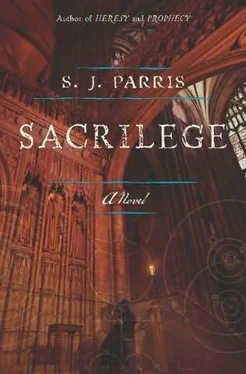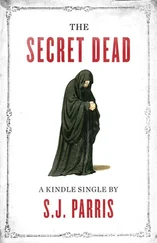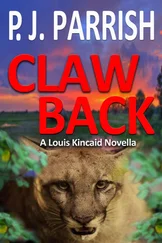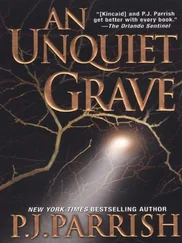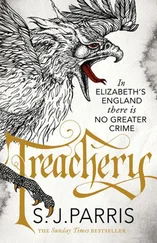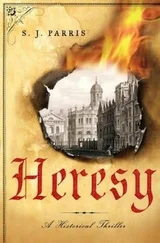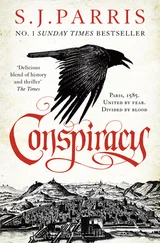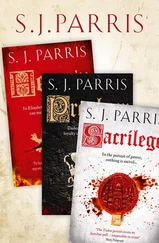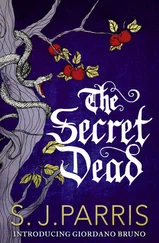I knew now who had killed Sir Edward Kingsley and Doctor Sykes. I just had to make certain. And then I had to decide what I would do about it.
Minutes stretched out; I do not know how long I waited there. One of the older women passed out and fell, dragging down those manacled to her; someone else pissed themselves where they stood, past any care for human dignity. Hemmed in on both sides, I retreated into my thoughts, feeling that a hole had been ripped through me, as if with cannon-shot.
After a while the door opened a crack and the clerk’s face appeared in the opening.
“Where is the Italian?” he said.
I shuffled forward, raising my hands. The chains were growing heavier and my shoulders ached from the weight of holding them. He beckoned me forward and stepped back as I passed him, as if to avoid contagion.
Dean Rogers stood outside, his long face tight with anxiety.
“They said you wanted to pray?”
So Edmonton was afraid of my connections after all. I nodded. “I also needed to ask you something.”
“Whatever I can do.” He glanced around, then leaned closer. “I have spoken to Justice Hale on your behalf. But—the evidence …” He trailed off uncertainly.
“I understand. I just need to know if anyone apart from you has a key to enter the crypt.”
The dean frowned.
“Normally, no one but myself. Although,” he added, with a dismissive wave, “some weeks ago I did give a copy to the minister of the Huguenot Church, for access to their little chapel, but in practice he does not need to use it. They hold their services during the hours when the crypt is unlocked. Why do you ask?”
“What is his name, the Huguenot minister?” My mouth had dried and the words came out cracked.
“He is a lay minister only, but he is ordained. Pastor Fleury. Jacques Fleury, the master weaver. But has this anything to do with your case?” he asked, concern in his eyes.
“I—” I looked up at him. “Will you pray with me now?”
“Of course.” He laid a hand on my shoulder and embarked on some benign platitudes in his pleasant, soothing voice. I was grateful for the sentiment, but my thoughts were elsewhere. When he had finished, the clerk cleared his throat and opened the door into the anteroom.
“The prisoner ought to go back until he is called,” he said, apologetically.
“Have you seen Harry? Is he here?” I whispered to the dean, as the guards ushered me towards the door.
He shook his head. “Not yet. I fear he may not be able to get through the crowds with his leg. Now I must take my seat in the courtroom. God be with you, Doctor Savolino.”
I thanked him and submitted to being returned, none too gently, to my fellow prisoners. Had Harry found his way to Justice Hale in time to explain everything? I would only know the answer when I stood to face him.
I was crushed next to one prisoner whose head hung towards the floor as if he had fallen asleep standing up.
“Are you a Canterbury man?” I asked, nudging him in the ribs.
He raised his head slowly and stared at me, amazed at being spoken to. I recoiled a little at the running pustules around his mouth.
“Born and bred. And shall die here today, most like,” he said, as if it no longer mattered.
“Where is St. Radigund’s Street?” I asked. He blinked slowly.
“Out by the old Blackfriars. You know,” he said, when I looked blank. “Crosses the river a little way past the weavers’ houses.”
“The weavers’ houses,” I repeated, nodding. The man looked at me for a moment longer, then hung his head again. He did not ask why I wanted to know. When you are facing the gallows, such things have no importance.
* * *
THE COURTROOM ITSELF was less chaotic than the entrance hall and anterooms; here, at least, benches were provided along one side of the room for citizens of status, though people were packed standing into the spaces behind and to every side. The air was smoky and smelled strongly like the apothecary’s shop; in each corner, braziers stood on tall tripods burning aromatic herbs to ward off gaol fever. It must have been near to midday by the time I was led in along with nine other prisoners, including the old monk, all of us indicted for cases of blood; we were hustled into a corner behind a low wooden barrier. At the far end of the room a raised dais had been built, where Justice Hale sat at a broad table covered with piles of papers and surrounded by his retinue of earnest, black-robed clerks and juniors. Around his neck he wore a silver chain with a round pomander, which he raised frequently to his nose as protection against the pestilence. To his right, twelve grim-faced men shifted on their benches, arms folded. This, I guessed, was the jury; they did not have the look of men you would turn to for compassion. The murmur of conversation swelled as we filed in, chains clinking rhythmically like a tolling bell; I glanced up and saw that Hale was looking at me. Our eyes met and he held my eye for a moment with a grave expression, but he gave nothing away.
The prisoners were taken up one by one to the bar to face the prosecutor and hear the charges against them read. The old monk, Brother Anselm, was the first to be called; as the guards unfastened him from the chain and shoved him to his place, I glanced around the courtroom. Dean Rogers was seated among the city dignitaries, as was Langworth, his brow drawn, the scar pressed white with apprehension. I had not missed the expression that flashed across his face when I was led into the hall; if he had depended on my being found dead in my bed this morning, he allowed his displeasure to show for only for a moment. He would have some other weapon up his sleeve, I had no doubt. Among the onlookers standing I saw Tom Garth and the Widow Gray; Rebecca and Mistress Blunt; Nicholas Kingsley and his hangers-on. There was still no sign of Harry. I closed my eyes, as if that might shut out the pain in my chest. Twice the justice tried to speak over the din of conversation, but the crowd were so animated, talking and pointing (for the most part, I was conscious, at me), that the court bailiff had to shout for order and thump his staff on the floor several times before Hale could make himself heard.
A witness stepped up to say he had found the old monk beside the dismembered body of a young boy on a midden outside the city wall one morning when he was bringing his cart in for the market; Brother Anselm tried to explain to the bench what he had told me, but in his distress he became incoherent, clutching at his clothes and lapsing into Latin. When he spoke his plea of not guilty there was a chorus of loud boos and hisses from the onlookers. I watched, dismayed, as three of the jurymen turned to confer among themselves with barely disguised contempt. Another seemed more interested in the movements of a fly on the ceiling, leaning back with his hands folded behind his head, and another was quite brazenly falling asleep, his chin slumped onto his chest. Occasionally he would jerk upright and look around, as if unsure where he was, before his lids began to droop again. To sit through fifty or more of these cases unpaid would test any man’s patience, I supposed, but my gut twisted with anger at the thought that any man could be so casual with another’s life. Hale nodded for the old man to stand down. As he was taken from the bar, his eyes cast around wildly and landed on me, wide and pleading. “Speak for me, brother!” he cried out, as he was led back to us. “You know the truth!” I nodded, hoping to offer him some comfort, but that only caused more whispering and pointing in my direction.
Hale shuffled papers, made notes, replaced his quill carefully in its stand, sniffed his pomander, and eventually looked up from his list.
Читать дальше
Конец ознакомительного отрывка
Купить книгу
